Profile
Add more value to yourselves – Mrs Sackey-Cadbury admonishes women

This week’s profile is focused on a very determined and humble woman whose struggle in her early years, could not kill her vision of becoming a prominent figure in society whose contribution to human resource development would stand the test of time.
This woman defied all odds and jumped over every hurdle put in her way to carve a niche in the catering and hospitality industry in Ghana.
Mrs Princess Angela Sackey-Cadbury, the proprietress of Citadel Events, a school of hospitality at North Kaneshie in Accra, has nurtured the talent of the youth by giving them the requisite training to become productive citizens in their fields of endeavour.
Her outstanding achievement in the catering and hospitality industry has attracted people from all spheres of life to learn and acquire peculiar skills for themselves in her school.
Background
Mrs Sackey-Cadbury who is Ga from James Town, Accra, had her primary school education at the St. Anthony’s Preparatory School at Laterbiokorshie and Junior Secondary School education at Nungua ACC ‘4’, all in Accra where she wrote the Basic Education Certificate Examination (BECE).
She proceeded to Ahmadiyya Secondary School (Potsin), in the Central Region where she offered Home Economics due to her futuristic interest in pursuing catering as a business venture.
The focus-minded woman after secondary school enrolled at Cake Tekniks Catering Institute to study and practise sugar craft and later taught in the institute for two years.
Poised to achieve her childhood dream, Mrs Sackey-Cadbury enrolled at the Accra Polytechnic, now Accra Technical University in 1998 and studied Hospitality.
She completed in 2001 and bagged a Diploma in Hospitality from the Accra Technical University.
Ordeal
Her dream in setting up a hospitality school was becoming difficult but with determination she was able to make it.
She said in the catering environment, it was difficult when students did not have their own equipment for the designated practical work to test their depth of knowledge in the courses taught.
“I sometimes have to support my students in cash or kind for them to fulfill their course work since the materials needed in catering are costly”, she said.
She is of the view that “extending a helping hand to the needy in skills acquisition is worth satisfying to the soul”.
Uniqueness
Her outstanding persona in the hospitality and catering industry is the drive to make a difference among the number of hospitality service providers in the country.
Working under strict hygienic conditions, Mrs Sackey-Cadbury ensures that her clients are properly served to enable them enjoy all the local and continental dishes served on all occasions.
The Hospitality History
Making a transformation in her hospitality endeavour into a broader spectrum, she expanded her small scale venture to a more resourced one to attract clients and students.
She told The Spectator that her services were earlier provided at Nungua-Brigade, Accra, where she started the school with an inspiring number of people.
“Due to the nutritious nature of my cakes and meals, people advised me to make it a school in order to harness talents in the catering industry, so I adhered to their advice and started the school”, she added.
Previously, the school was called Peesac Catering and Floral School and offered courses in Catering, Sugar Craft and Events.
From there, she relocated to her current venue at North Kaneshie where she changed the school’s name to Citadel Events based on the suggestions from her husband.
Family
Mrs Sackey-Cadbury is married to Pastor Nestor Danso Cadbury and are made up of a family of six who fellowship at the New Covenant Assemblies of God, Nyamekye-Accra.
Ecstasy
Her joy in the hospitality and catering industry is matchless and no one can stop her from doing what she loves best.
“This profession is a vocation where no one can take it from me and I have combined other businesses to it but the skill of catering is an undying one which is always part and parcel of me”, she reiterated.
Another joy she expressed was the provision of training for the hopeless to also have vocational skills as a means of empowering them.
Advice
Mrs Princess Sackey-Cadbury advised all to have vocational skills and asked women to ensure that they have something new in addition to their profession to enhance their skills.
“Desire to make an impact in society and make sure you learn a course in either catering or hospitality to make your home a fun-packed haven,” she told women.
Others
The banku and okro stew with crab fan loves cooking, listening to gospel music and reading books.
Mrs Sackey-Cadbury expressed her profound appreciation to some key role players in her life including her husband Pastor Danso Cadbury, Rev. and Mrs Blessing Mensah, Madam Florence Okine and all those who have made her dream come true.
By Alfred Nii Arday Ankrah
Profile
Salamatu Ahmed, Ghana’s only female Hausa sports broadcaster
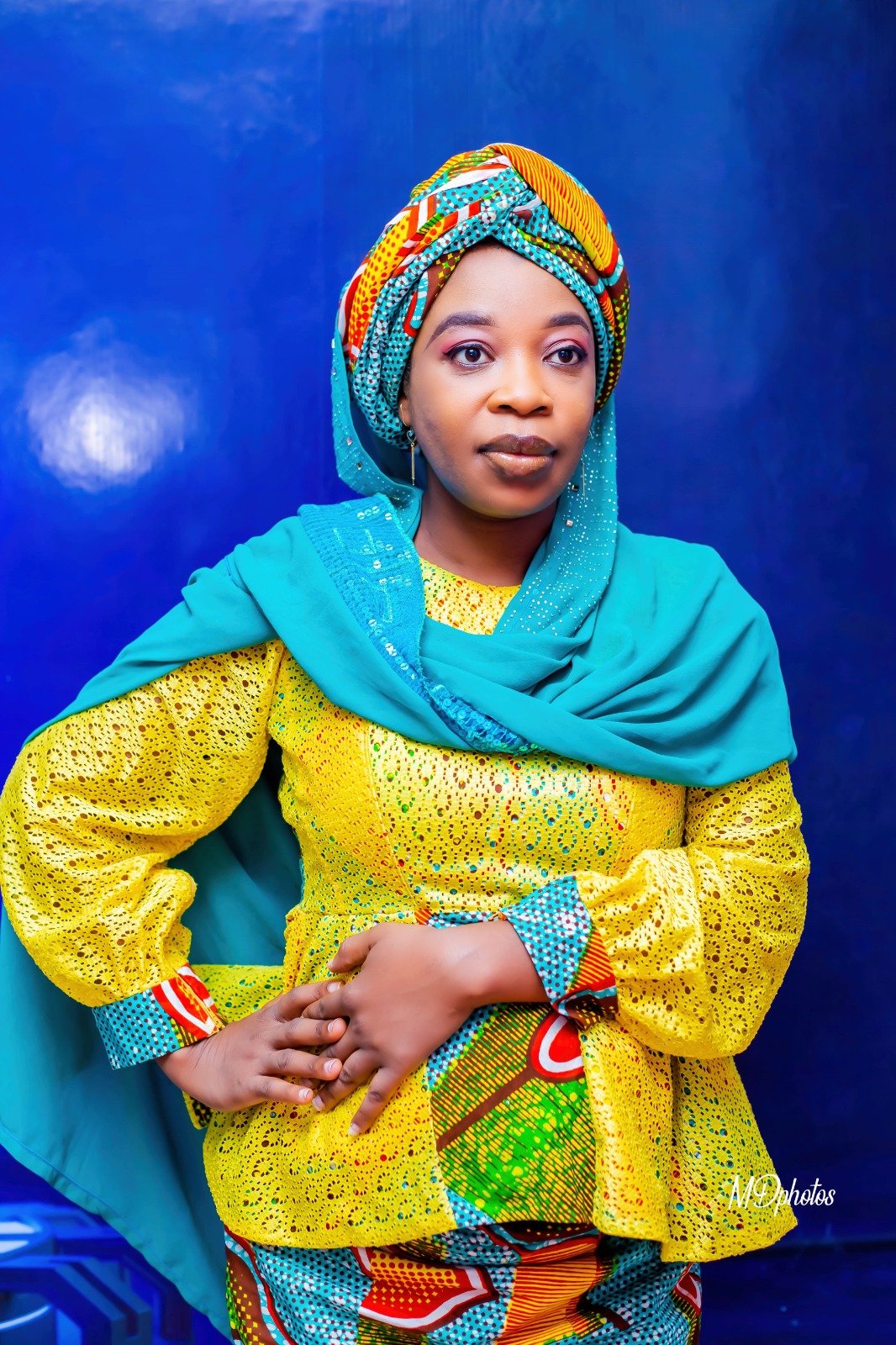
In a field long dominated by men, she has turned her microphone into a tool for change, amplifying women’s voices, promoting gender equality, and challenging deep-rooted stereotypes in sports journalism.
In Ghana’s media landscape, especially in the arena of sports, Salamatu Ahmed stands out. Not just as the host of Iqra Radio’s popular morning show, but as the country’s only female Hausa sports broadcaster.
From humble beginnings in Lagos to an influential voice behind the microphone in Accra, her journey is one of boldness, resilience, and purpose.
“I grew up in a close-knit neighbourhood in Lagos where everyone looked out for each other,” she recalled in an interview with The Spectator on Monday. “There was no discrimination. I could enter any house, share a meal or even sleep over without raising eyebrows. That spirit of unity shaped my values.”
She said, her love for broadcasting was sparked by her father, who was an athlete and devoted news watcher. Her father loved sports and news and recounted how she used to sit with him, watching the newscasters and wondering how they memorised so much.
“I later found out they used a teleprompter-what a relief!” she said with a laughter.
Salamatu’s passion for football heightened during the France ‘98 World Cup. “I watched almost all the matches. That tournament made me fall completely in love with the game,” she said.
But it was not until years later that broadcasting became a real career path-and quite unexpectedly.
She recounted how a friend of hers was managing Hijra TV asked her if she knew anyone who could do Hausa sports for the TV station.
She grabbed the opportunity as she was not working at the time, saying “so I offered myself,” she explained. “That was how it all started.” From Hijra TV, she moved on to Baina TV and eventually found her home at Iqra Radio.
Though her original dream was to become an English-language sports anchor, Hausa unexpectedly became her breakthrough. “People always ask how I manage to do it in Hausa, and the fascinating part is I am a woman doing it. That’s what truly sets it apart.”
But the journey has not been without hurdles. As a woman in sports media, she has had to fight for access and respect.
“It is always difficult getting interviews. Some male counterparts do not like sharing contacts or information,” she said.
Salamatu recounted how early on, men would ask for sexual favours in exchange for job opportunities. She said it got so discouraging that she left job-hunting for a while and ventured into business instead.
Now firmly established in her field, she uses her platform not only to cover sports, but to push for systemic change. As a panelist on various forums and a vocal supporter of women’s football, Salamatu has advocated for increased investment, better pay, and more opportunities for female athletes.
“Why should male footballers be paid more for doing the same job?” she quizzed during the conversation. “Female athletes often do not get bonuses or incentives that make life easier for them. People label us feminists for speaking out-but isn’t it just fairness?”
She also spoke passionately about how female athletes face scrutiny that goes beyond performance. “Look at Barbara Banda of Zambia; she faced criticism for being too ‘masculine.’ Imane Khelif, the Algerian boxer, faced similar discrimination. It’s disheartening. People forget these women are excelling at their craft.”

In 2024, Salamatu’s influence reached the global stage when she was selected to represent Ghana at the Fourth Eurasian Women’s Forum in St. Petersburg, Russia. There, she joined other global leaders in conversations about empowering women in media, politics, and business.
“That experience showed me that our voices matter beyond our borders,” she said. “We are not just fighting for recognition here; we are part of a global movement.”
Away from the microphone, Salamatu is known for her bubbly personality. “I am a fun-loving person-anything fun, count me in! I love cooking, watching movies, and reading.”
She credits her background-a Muslim from a Zango family for instilling in her resilience and discipline.
After schooling in Lagos, she moved to Ghana and earned a diploma in Communication Studies from the African University College of Communications (AUCC), now African University of Communication and Business (AUCB).
Her greatest pride is being the only female voice doing Hausa sports broadcasting in Ghana.
“Until someone else comes along, I will keep holding this fort,” she said with a smile. “It is my biggest achievement so far.”
For young girls looking up to her, she urged them never to be intimidated but rather carve a niche for themselves and be unique.
“You do not have to sound like or look like everyone else. Just be you and be excellent,” she added.
By Esinam Jemima Kuatsinu
Profile
Fiator Mordeku III of Awudome Tsito — The bridge builder in chieftaincy and architecture

Fiator Mordeku III of Tsito, known in private life as Kafui Kwame Amegbe, is a unique blend of tradition, service, and modern professionalism.
As a chief, an architect, and a community development advocate, he wears his many hats with humility, driven by a powerful dual motivation: a deep desire to serve and preserve his family’s legacy, and to play an active role in creating positive change in society.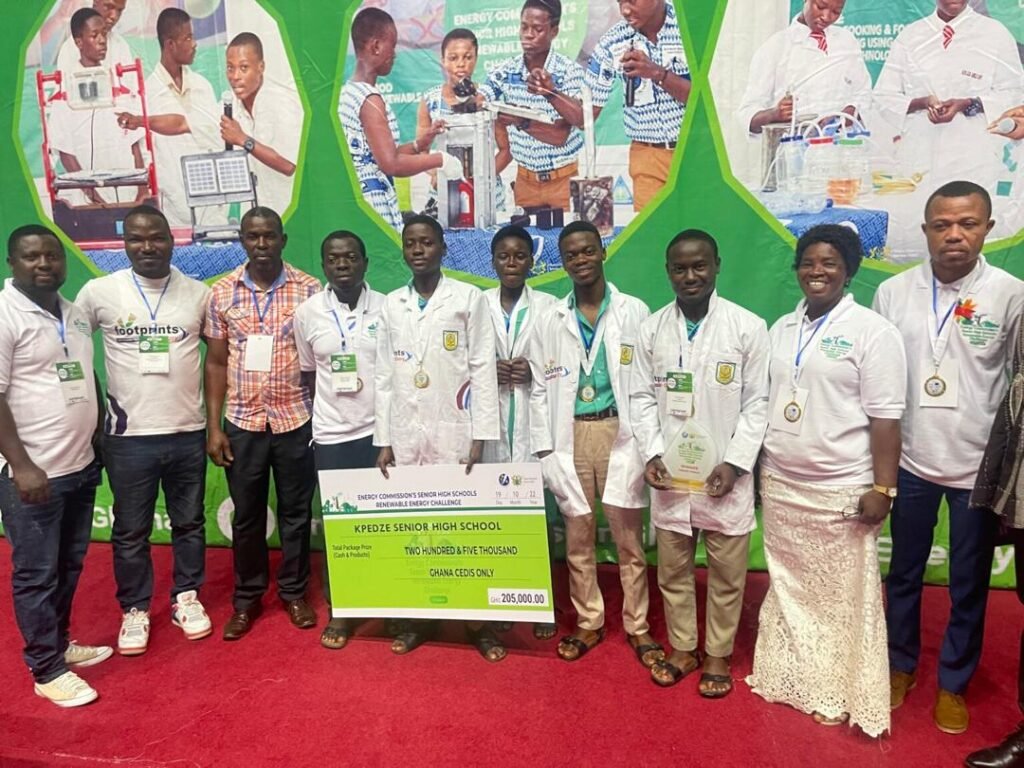
picture with winners of the Energy Commission
High School renewal energy challenge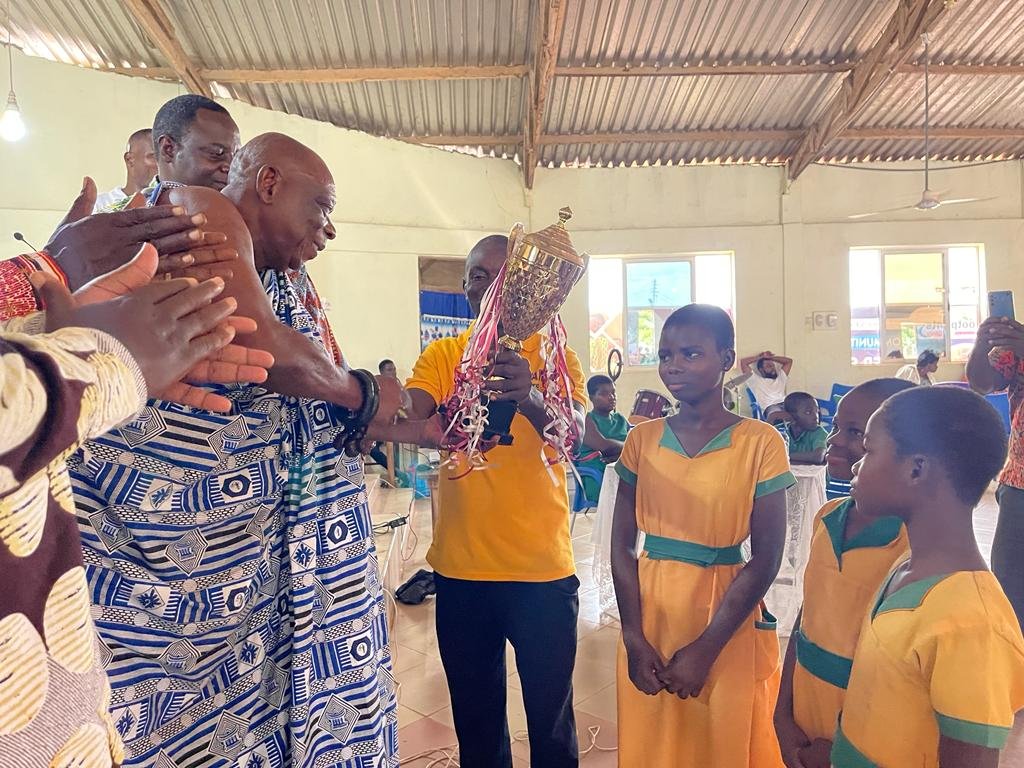
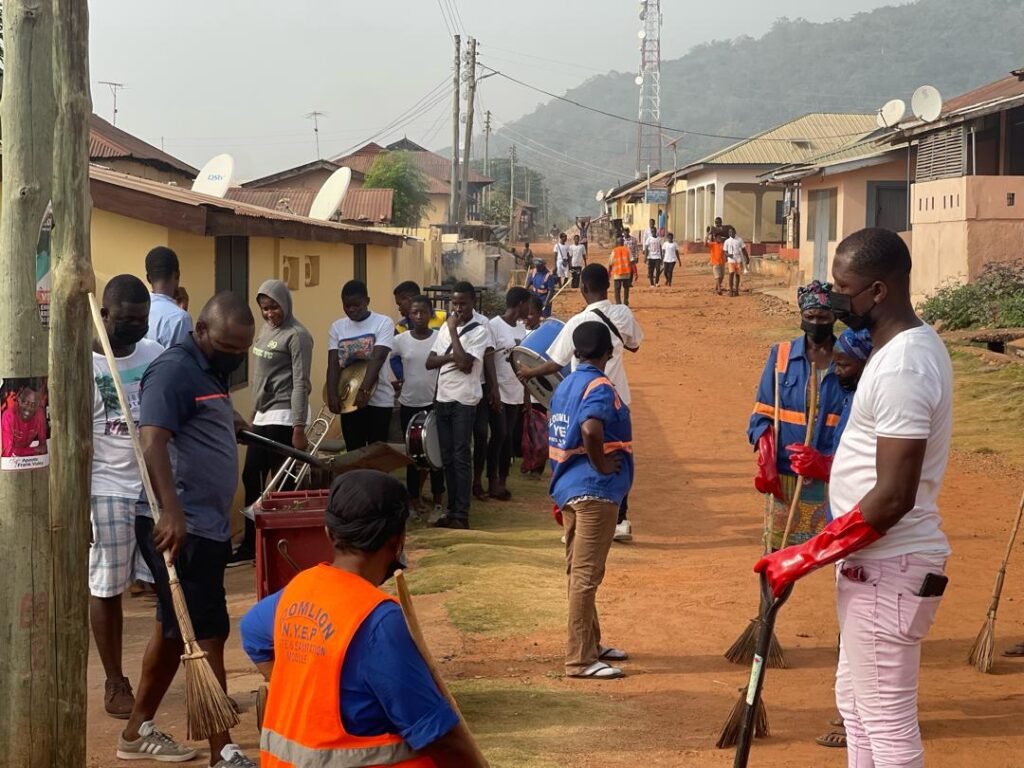
From a young age, Kafui’s life has been guided by strong values rooted in communal living.
Growing up in a close-knit family and community, he experienced firsthand the power of shared responsibility-where neighbours became second parents, and village elders doubled as life coaches.
Speaking to The Spectator in Accra on Saturday, Fiator Mordeku Ill said one childhood memory that continues to inspire him is when Togbe Gobo Dake XII, Chief of Tsito, bought him a slate for his first day in school.
Today, he serves as Fiator (father to Togbe Gobo Dake XII) to his childhood benefactor-a powerful circle of legacy and service.
“I was enstooled in my late 30s, so this journey is still quite fresh-just under two years in,” he said, by many standards that is considered quite young, especially given the weight and complexity of traditional leadership.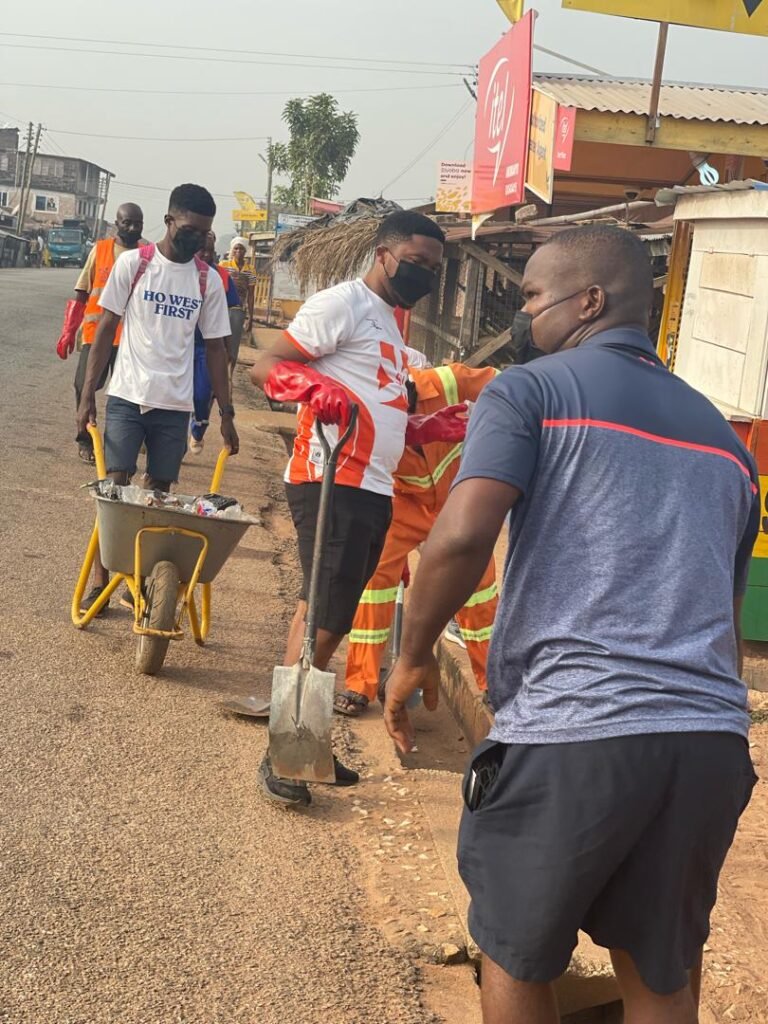
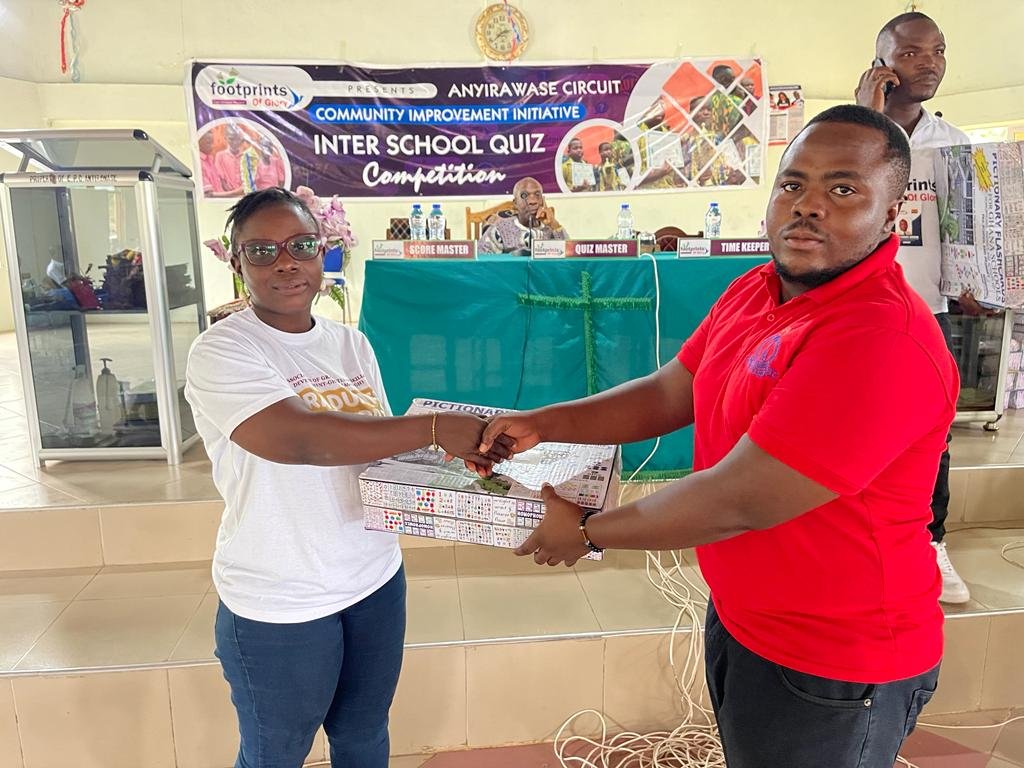

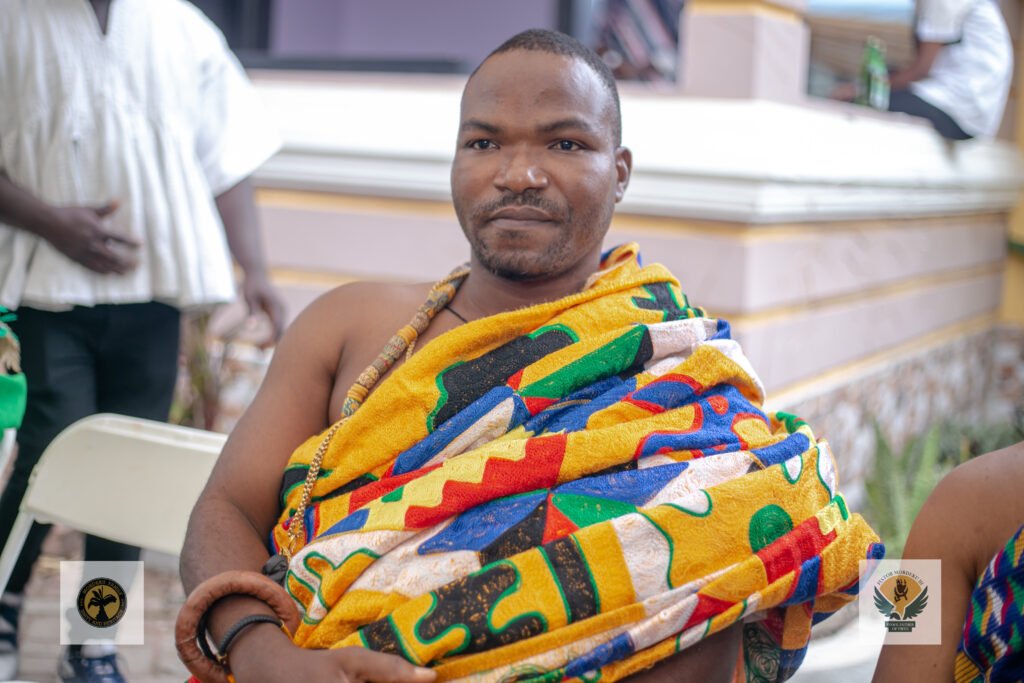
Tsito during his coronation
But I have always believed that leadership is not about how old you are; it is about preparation, mentorship, vision and most importantly, a desire to serve.
According to him, becoming a chief at a young age came with immense responsibility, saying “chieftaincy can be complex and sometimes misunderstood, but my family played a key role in preparing me.”
On the day of his enstoolment, he stood composed, not because it was easy, but because he was aware of the expectations ahead.
The reality, however, only sank in later-when the calls, community issues, and needs began pouring in. For him, leadership is not about titles but about providing proactive and adaptive leadership that reflects the needs of today’s fast-changing society.
Fiator’s reliability with the youth is a defining feature of his reign. “I am not far from the Gen Zs,” he says.
This closeness, according to him, enables him to connect with young people on a peer level, encouraging them to engage in community initiatives and understand the importance of preserving tradition. It is this connection that empowers him to blend traditional authority with modern innovation.
Outside of chieftaincy, Kafui is a passionate architect and advocate of sustainable design.
His love for designing spaces began as early as Junior Secondary School, and today, he continues to inspire with thoughtful architecture that focuses on sustainability, community needs, and the intelligent use of local materials.
To him, architecture is about how people interact with spaces, and one of his proudest contributions is his role in the design of the new Regional House of Chiefs projects across Ghana’s six new regions-a national undertaking that incorporated diverse stakeholder inputs.
His work as an architect and a chief converges in one of his most symbolic projects-a small concrete bridge he built behind his house.
It replaced a dangerous makeshift path used by locals, especially the elderly, to cross a storm drain.
“Now people walk across without fear. That one act of building a bridge, literally and symbolically, pushed me to think more deeply about the many quiet struggles people go through,” he said.
This bridge became the foundation for his greater calling – providing not just charity, but dignity and equity.
Through the Footprints of Glory Foundation, which he founded in 2020 and officially registered in 2021, Kafui has launched impactful initiatives across Tsito and the wider Awudome area.
From funding school fees and apprenticeships to constructing small community bridges and launching an online radio station (soon to become a full community station), the foundation has been a lifeline for many.
It is supported by respected individuals like Dr Yao-Foli Sekyema and Mr Michael Brefo. The foundation’s success lies in collaboration and shared purpose.
A touching example of his impact is the story of a young boy from a neighbouring village who, due to financial hardship, was working on farms despite being a top student. Fiator took him in, supported his education, and
today, the boy is university-bound-a story that encapsulates the spirit of his work.
“I don’t dwell much on legacy,” Fia
tor said. “My focus is on providing real, practical solutions that ease burdens and improve lives.”
Whether it’s mentoring architecture students, building community projects, or planning future academic pursuits.
Currently, he is studying for an MSc in Facilities Management with the aim of uplifting others through service, innovation, and collaboration.
He called on the youth to embrace discipline, humility and a deep willingness to keep learning, urging the youth not to be afraid of hard work or setbacks and that they were part of the journey.
“Find people who inspire you, ask questions, stay curious, and never forget your roots. Where you come from is your foundation, and it will keep you grounded no matter how far you go and we don’t have to wait until we are older to start serving.
He is married with three children and enjoys working out, playing lawn tennis, travelling, listening to music which he says helps him reflect, plan and recharge.
By Esinam Jemima Kuatsinu






